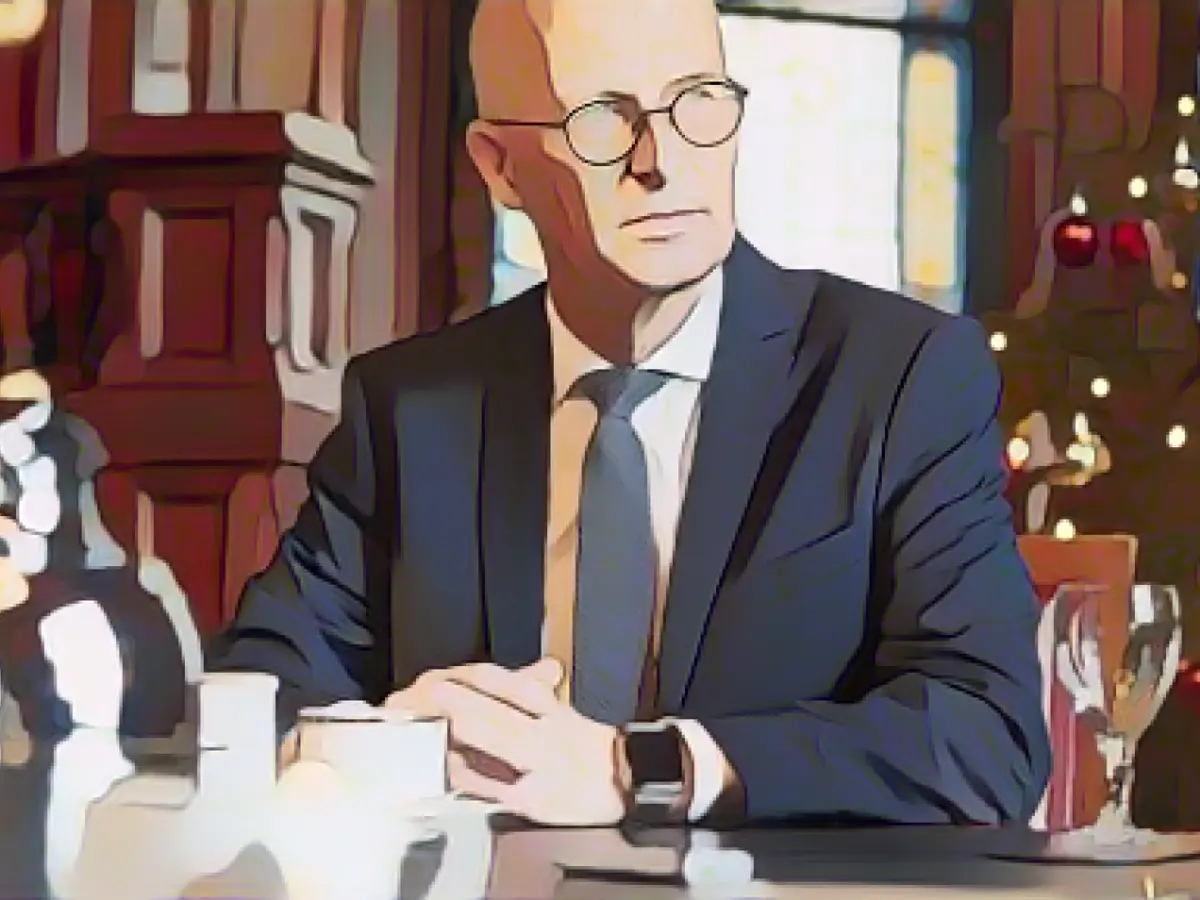Parties - Tschentscher sees SPD on course: Union stabilizes traffic light system
Hamburg's mayor Peter Tschentscher believes his SPD is on course despite poor approval ratings in the federal election and for the chancellor. "The poll figures for the SPD were already worse - and yet the SPD won the federal election and Olaf Scholz became chancellor," Tschentscher told the German Press Agency. "The performance of the coalition government must be assessed against the backdrop of the crises and major issues that need to be tackled." In the absence of alternatives on the part of the CDU/CSU, the cohesion of the alliance between the SPD, Greens and FDP would be strengthened, even if there were always differences of opinion.
"The federal government currently has to make fundamental and far-reaching decisions that affect many people. It is normal that this does not happen without jolting and also not always without resistance," said the mayor. "What needs to be done now is based on years of neglect: The renovation and modernization of the infrastructure, the strengthening of the Bundeswehr, the energy transition with a massive expansion of renewable energies."
The decisions in all of these areas would have far-reaching consequences. "And a country can sense that, after a long phase of indecision and delay, a phase is now beginning in which things have to be pushed forward at full speed that are not easy." Nevertheless, these decisions are necessary so that Germany does not fall further behind.
In addition, it is not unusual for approval ratings to be low in the middle of a legislative period. "That was also the case with previous federal governments. I am confident that approval ratings will rise again once things have stabilized. The SPD will then also have an easier time in election campaigns again and be successful."
Approval ratings for the SPD had recently fallen to 14% in opinion polls. Around two thirds of citizens were dissatisfied with Olaf Scholz 's work - a negative record for a Federal Chancellor. Following the Federal Constitutional Court's budget ruling, the CDU had called on Scholz to call a vote of confidence and, if necessary, clear the way for new elections.
Tschentscher does not consider a premature end to the traffic light system to be expedient. It is true that the three-party alliance after the last election was not the desired result. "But if you look at how the CDU/CSU in particular is acting in these times, there is not much state to be made of it either. So what would be the alternative after a new election?"
Tasks and issues would remain the same. "A new election will not change the question of how public budgets are financed in such a stressful situation that Germany finds itself in," he said. "It is not at all clear what alternatives there would be in a coalition with the CDU."
For example, there are no proposals from the CDU/CSU on how to help the flood victims in the Ahr valley or how to finance support for Ukraine, said Tschentscher. "The CDU/CSU's actions are stabilizing the traffic light coalition because everyone involved knows that they are now responsible and must solve the problems without the CDU."
Read also:
- A clan member is punished here
- Traffic lawyer warns: Don't talk to the police!
- Will he be convicted as Jutta's murderer after 37 years?
- He also wanted to kill his cousin
- Despite the SPD's poor approval ratings in the federal election and for Chancellor Olaf Scholz, Peter Tschentscher, the mayor of Hamburg and SPD member, believes his party is on course.
- Tschentscher stated that the SPD won the federal election and Scholz became chancellor, despite worse poll figures, indicating the coalition government's performance should be assessed against crises and major issues.
- The cohesion of the alliance between the SPD, Greens, and FDP would be strengthened due to the absence of alternatives from the CDU/CSU, despite differences of opinion within the coalition.
- Tschentscher highlighted that the federal government is currently making fundamental decisions affecting many people, which may cause jolting and resistance but are necessary to prevent Germany from falling further behind.
- Infrastructure renovation, strengthening the Bundeswehr, and the energy transition with a significant expansion of renewable energies are among the areas where the federal government needs to act.
- During the middle of a legislative period, it is not unusual for approval ratings to be low, as was the case with previous federal governments, according to Tschentscher, who is optimistic that approval ratings will rise again when things stabilize.
- Approval ratings for SPD had recently fallen to 14%, and around two-thirds of citizens were dissatisfied with Chancellor Scholz's work, a negative record for a Federal Chancellor.
- Tschentscher does not consider a premature end to the traffic light system to be expedient and believes that the CDU/CSU's actions are helping to stabilize the coalition, as everyone involved is now responsible and must solve the problems without the CDU.
Source: www.stern.de








